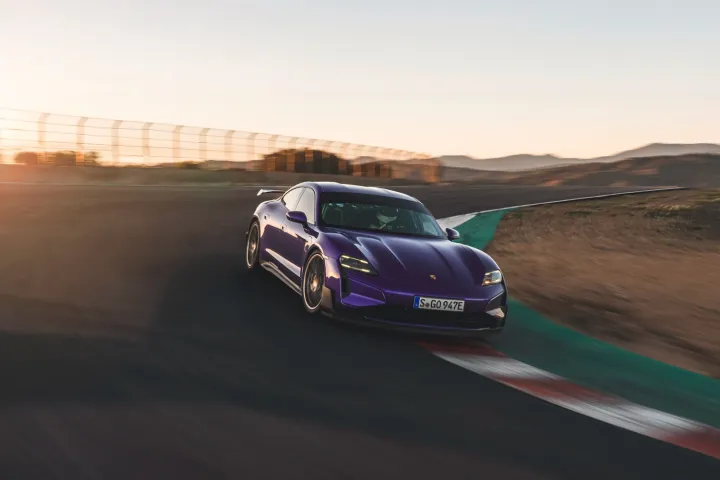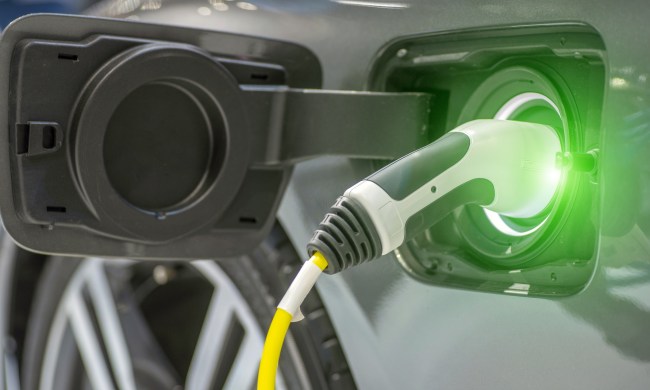
Porsche is capping off its updated 2025 Taycan lineup with a new model called the Turbo GT. It’s not only the most powerful version of Porsche’s electric sedan but the most powerful series production Porsche ever.
A new rear electric motor with a more powerful pulse inverter dials the Taycan Turbo GT’s dual-motor all-wheel drive powertrain up to 777 horspower in its default state. Launch control further increases output to 1,019 hp, and a maximum 1,092 hp is available for up to 2 seconds, according to Porsche. Maximum torque output is 988 pound-feet.
An optional Weissach Package includes additional aerodynamic elements like a fixed carbon fiber rear wing that generates a claimed 485 pounds of grip-inducing downforce. The Weissach Package also shaves off a few pounds by eliminating the Bose audio system that’s standard in the regular Turbo GT, the dashboard clock, the driver’s side charge port, and trunk and floor mats. Weissach Package cars also have lighter carbon fiber rear seats and less insulation material.
Porsche says the Taycan Turbo GT can accelerate from zero to 60 mph in 2.2 seconds, or 2.1 seconds with the Weissach Package. It can also reach 124 mph from a standstill in 6.6 seconds, or 6.4 seconds with the Weissach Package. Top speed is 180 mph in standard form or 190 mph with the Weissach Package.
An Attack Mode also provides up to 160 hp in 10-second bursts. It builds on the push-to-pass function already available in other Taycan models, offering more power and the option to trigger the power booster using the righthand shift paddle instead of the steering wheel mode button.
To ensure the Taycan Turbo GT can turn and stop as well as it accelerates, Porsche equipped it with standard summer performance tires on 21-inch wheels (with relief-milled spokes that reduce weight and improve brake cooling, Porsche claims), specially tuned adaptive suspension, and ceramic brakes.
The Taycan Turbo GT has already proven itself with a handful of lap records. Driver Lars Kern set a record for production EVs at California’s Laguna Seca racetrack with a 1:27.87 lap time. Kern also got the Turbo GT around Germany’s Nürburgring Nordschleife in 7:07.55. That was 26 seconds quicker than the time Kern achieved in a Taycan Turbo S in 2022, setting new records for both electric production cars and four-door production cars of all powertrain types, according to Porsche.
Scheduled to arrive at dealerships this summer, the Taycan Turbo GT starts at $231,995, but Porsche isn’t charging extra for the Weissach Package. The rest of the 2025 Taycan lineup, meanwhile, gets subtle styling updates, a bigger battery pack, and a revamped interface, among other changes.


